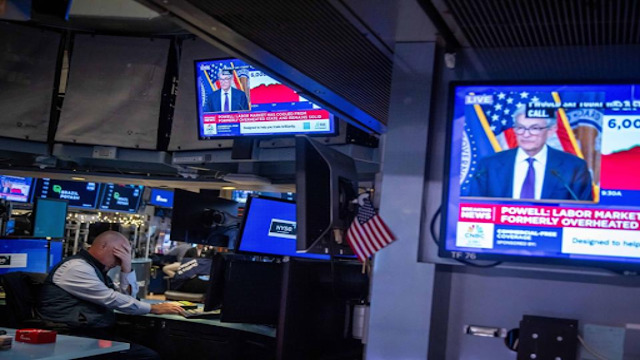
Wall Street Traders React Swiftly to Fed's Unexpected Rate-Cut Decision
Wall Street faced a sudden jolt on Wednesday as Federal Reserve Chair Jerome Powell took a cautious stance on interest-rate cuts for 2025. Just a year after sparking optimism with aggressive monetary easing, Powell’s shift toward restraint left markets in disarray, triggering a sharp sell-off in stocks and bonds.
The S&P 500 fell 3%, marking its steepest decline on a Fed decision day since 2001, and 10-year Treasury yields hit a seven-month high. Powell’s announcement of a “new phase” in monetary policy, coupled with the Fed’s forecast of only two rate cuts in 2025, dashed investors’ hopes for sustained policy easing. The fallout was immediate, with market players scrambling to reassess their strategies.
Tom di Galoma of Curvature Securities noted that the markets were unprepared for Powell’s neutral stance, emphasizing that political dynamics could shape future Fed actions. Economic resilience and persistent inflation, which remains above the Fed’s 2% target, have compounded the uncertainty. Traders, who had bet on a more extended cycle of rate cuts, were blindsided by Powell’s message.
This cautious tone rippled across financial markets. The Bloomberg Dollar Spot Index surged to its highest level since 2022, while the euro, pound, and Swiss franc all tumbled. Wall Street’s riskiest sectors bore the brunt, with Tesla plunging 8.3% and a Goldman Sachs index of most-shorted stocks dropping 4.9%. Bitcoin, which had been nearing $108,000, also declined by 5%.
Kevin Gordon of Charles Schwab observed that the speculative pockets of the market were hit hardest, highlighting how fragile sentiment had become. Volatility soared as the Cboe VIX index spiked above 28, and demand for options protection surged. Meanwhile, the KBW Bank Index slid 4.3%, with major banks like JPMorgan Chase and Goldman Sachs suffering losses of at least 3%.
Powell’s conservative outlook reflects the challenges of navigating a complex economic landscape. Inflation has proven more persistent than expected, and political factors, such as President-elect Donald Trump’s proposed tariffs and tax cuts, add to the uncertainty. Economists warn that these policies could further fuel inflation, complicating the Fed’s path forward.
Market strategist Chris Ahrens of Stifel Nicolaus emphasized that the Fed’s cautious approach is a response to inflation’s resilience and evolving political dynamics. Tom Graff of Facet Wealth noted that the bar for additional rate cuts is now significantly higher, with the Fed needing clearer signs of falling inflation to regain confidence.
As Wall Street grapples with Powell’s pivot, the outlook remains uncertain. The speculative frenzy that fuelled markets over the past two years has been abruptly curtailed, leaving investors to navigate a turbulent path ahead.















